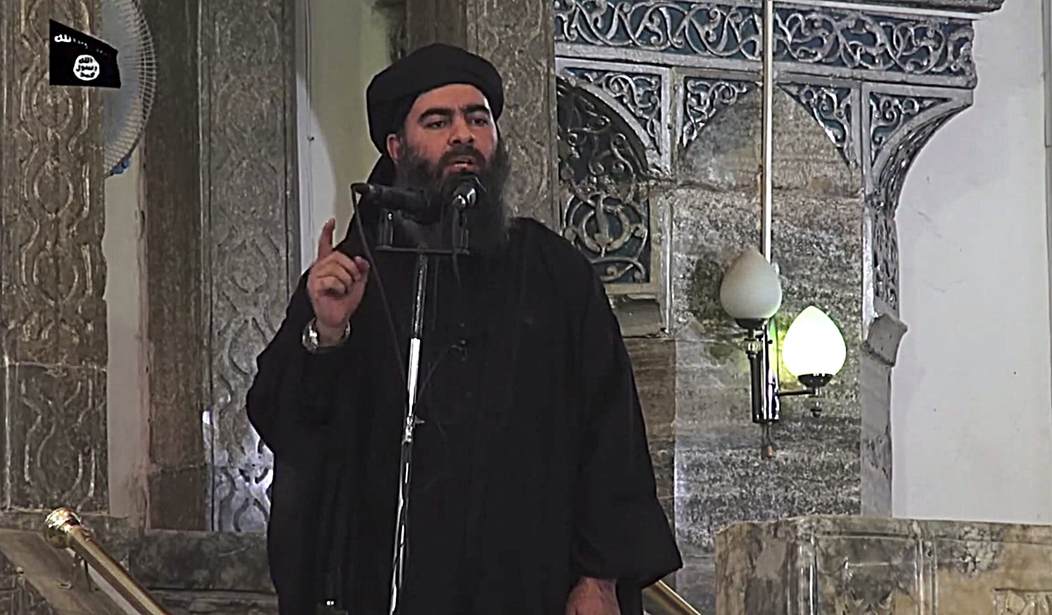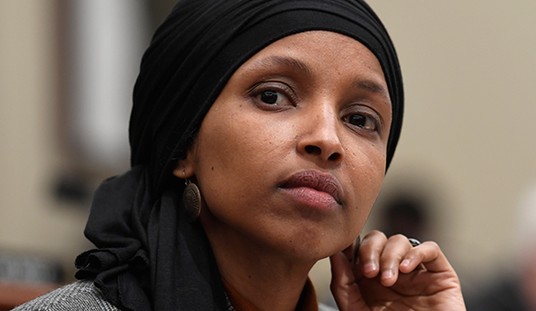Islamic State (ISIS) caliph Abu Bakr al-Baghdadi is dead, killed by an American airstrike in northwest Syria. President Trump announced this morning: “U.S. Special operations forces executed a dangerous and daring night-time raid in northwestern Syria, and accomplished their mission in grand style. The U.S. personnel were incredible.”
But the question now should not be avoided: why was al-Baghdadi hiding so close to Turkey? Were the Turks protecting him? If not them, then who was?
It strains credulity that Turkey, with its interests in northern Syria, did not know he was there. Al-Baghdadi was killed in Barisha in the Idlib province, a town of no more than 2500 people right on the Turkish border. If the Turks didn’t know that the world’s most wanted terrorist was there, they’re incompetent beyond measure. If they did know, they’re complicit in protecting him.
Given the track record of the Turkish government in aiding the Islamic State, complicity is much more likely than cluelessness. There ought to be a full investigation of Turkey’s involvement, and if the Erdogan regime is definitively found to have been protecting al-Baghdadi, Turkey should be expelled from NATO and the sham alliance with the United States ended. Given, however, the determined head-in-the-sand policy of the State Department establishment, none of that is likely to happen.
Meanwhile, the Islamic State is likely to go on pretty much as it has for the last year or two, after losing almost all of the area of its former caliphate in Iraq and Syria. If al-Baghdadi has a successor, he will be, like al-Baghdadi himself, a caliph without a caliphate. The Islamic State is still very much a presence around the world, but doesn’t control any significant expanse of territory, as it did when Barack Obama was President.
In fact, al-Baghdadi’s death is unlikely to affect ISIS as an international jihad terror group very much at all. Al-Baghdadi was hardly ever seen in the last few years, which was a function of his having a large bounty on his head, but it also may have been chosen as a strategy for other reasons: the Islamic State leadership may have decided that his power was enhanced by his being more mythical than real — an omnipresent but gnomic presence a la Big Brother in Orwell’s 1984.
Also, because the Islamic State is an ideologically driven movement, it hardly matters whether he is dead or alive: obviously the Islamic State has soldiered on without his having become a familiar media figure, and has maintained its claim to be the caliphate even without control of territory. It almost certainly will continue to do so.
What made the Islamic State appealing to some young Muslims was its claim to be the true embodiment of the teachings of the Qur’an and Sunnah. This appeal doesn’t depend on the power of a charismatic leader, which al-Baghdadi hardly was in any case. The Qur’an and Sunnah still exist, and therefore so also does the Islamic State. Leftist non-Muslim Islamic apologists who insist that to say such a thing is “Islamophobic” and that there are other, peaceful interpretations of the Islamic texts miss the point. The ISIS understanding of Islam may be as wrong as Obama, Pope Francis, John Kerry, and other learned imams insist. Nonetheless, its claim to be the true interpretation of Islam has not been successfully refuted by other Muslims; the Islamic State continues to gain recruits and will keep on doing so unless and until that convincing refutation appears.
And so the key question worth pondering in the wake of al-Baghdadi’s likely death is this: what took so long, and why? How did this most hunted of man survive for so long? It seems clear that there were powerful Muslim individuals and groups that were protecting him. Who were they? Was Recep Tayyip Erdogan among them?
The fact of this protection is obvious; the cause of it is once again the fact that the Islamic State was and is not implementing some twisted and hijacked version of Islam, but can make a strong case from the Qur’an and Sunnah to justify what they do. While not all Muslims supported al-Baghdadi and ISIS, Muslims supported them in sufficient numbers to make it the richest and most powerful jihad terror group in the world, and to keep al-Baghdadi alive for months after the Islamic State was driven out of its territory in Iraq and Syria.
There needs to be a thorough investigation now of who protected al-Baghdadi. Will there be? Don’t hold your breath.
Robert Spencer is the director of Jihad Watch and a Shillman Fellow at the David Horowitz Freedom Center. He is author of the New York Times bestsellers The Politically Incorrect Guide to Islam (and the Crusades) and The Truth About Muhammad. His latest book is The History of Jihad From Muhammad to ISIS. Follow him on Twitter here. Like him on Facebook here.










Join the conversation as a VIP Member